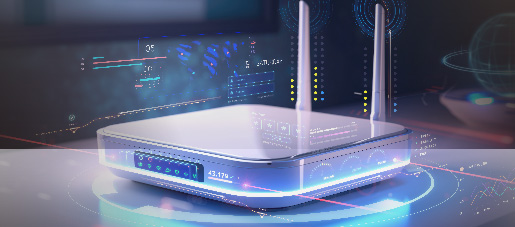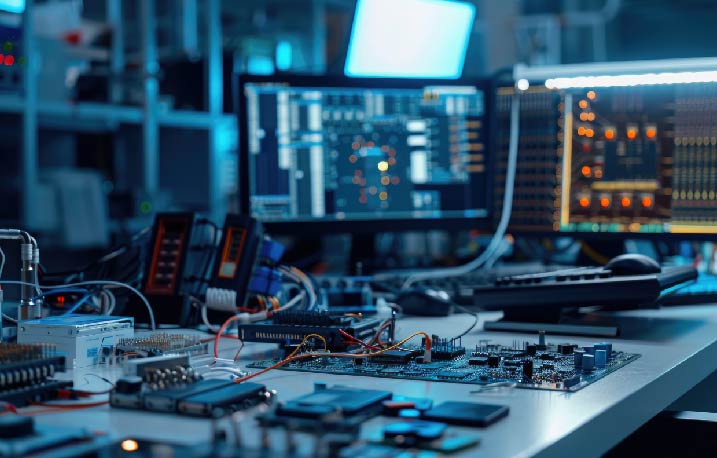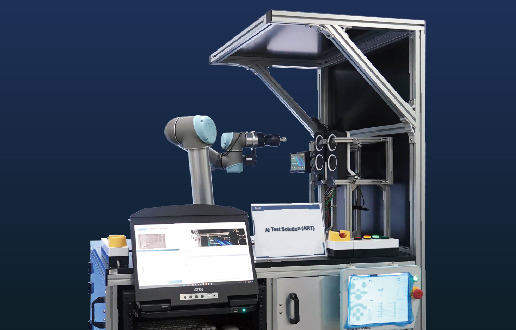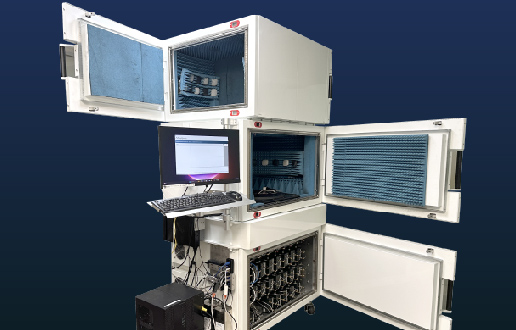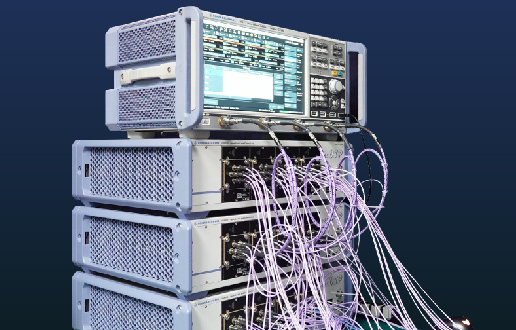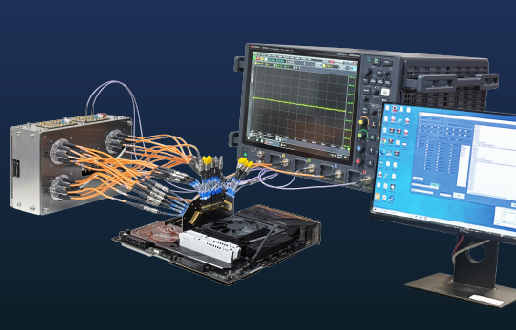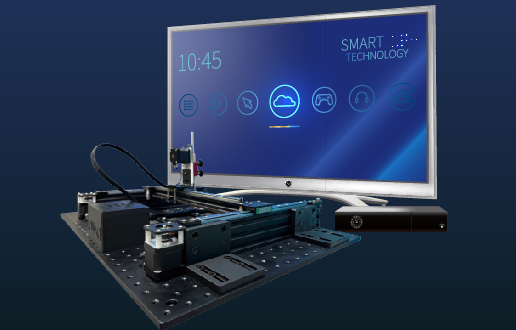OCP Storage: The Effects of Noise and Vibration on Hard Disks Part I
Allion Labs
With the rapid growth of cloud computing and cloud storage in recent years, the demand for servers has also increased for network service providers. Cloud service providers are also building more data centers to provide hardware for users who have increasing demands. The performance requirements and storage spaces of the servers themselves have also grown rapidly in response to the popularity of various multimedia streaming platforms such as Netflix, Disney+, Spotify, and others.
In recent years, the CPUs and hard disks (HDD) used in the servers have also become more powerful due to the increasing requirements in performance and storage. The increase in CPU performance means there will be higher power consumption and higher storage capacities.

The performance of other components in the servers has also improved due to the increase in CPU capacity but also bringing higher power consumption along with it. After the overall power consumption increases in a server, heat dissipation will become an even more important factor to consider. The cooling fan is one of the main components of a server’s cooling system. To increase heat dissipation, the speed of the fan needs to be faster so it can provide more air in the server that sends more heat out of the server’s case. However, as the fan speed increases, more vibrations and noise are introduced to the system, affecting other components in the server.
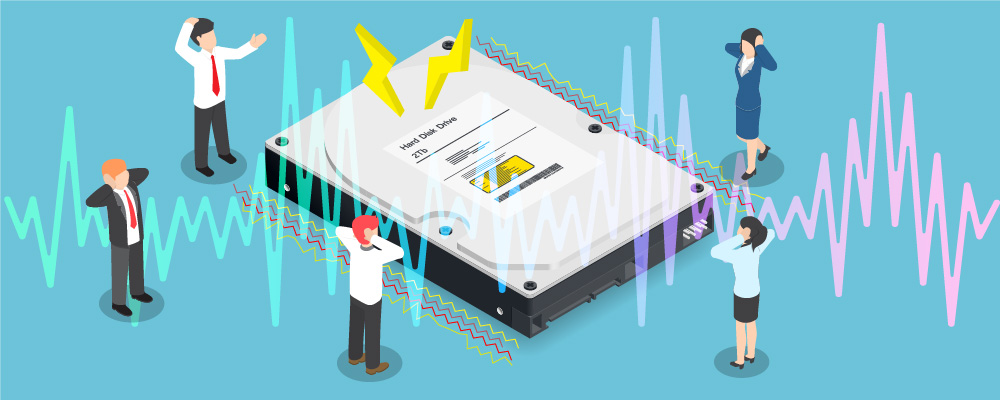
The hard disk is a component most likely to be affected by vibrations and noise from the fans. According to the experience and research, the vibration that affects the performance of the hard disk may come from the following:
- Vibration during system operation
- Transmission between hard disk and hard disk
- Vibrations generated by other devices near the hard disk
Among them, the noise and vibration generated by the fan operating at high speeds has the greatest impact on the performance of the hard drive.
- Current hard drive technology has a strong ability to adjust for vibrations below 2 kHz
- High-speed fans can generate up to 20 kHz of vibration.
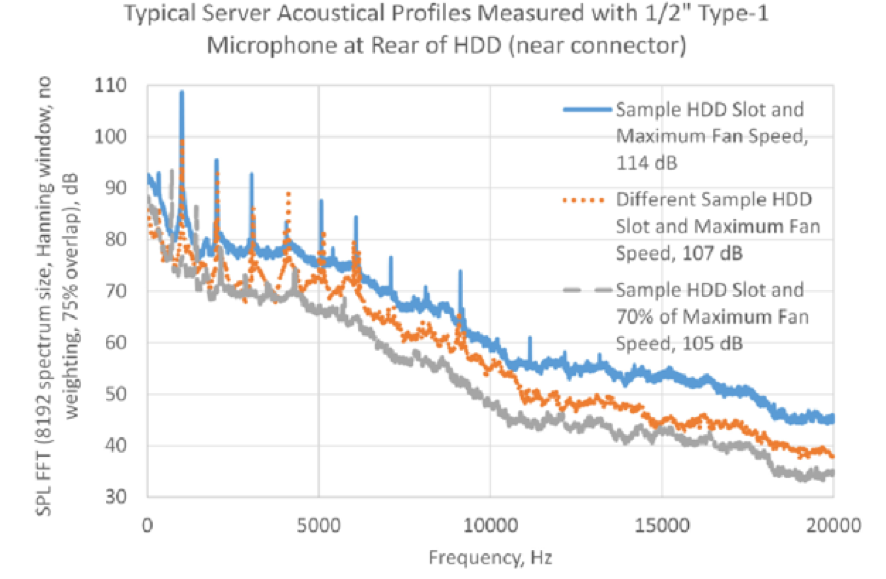
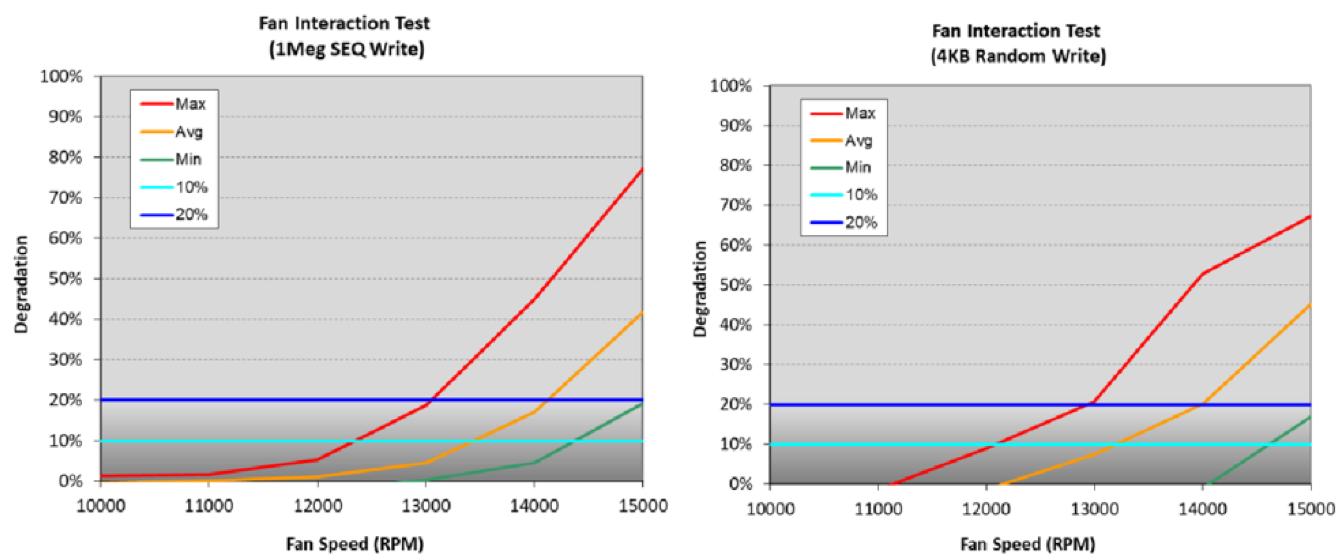
The high-density, high-performance storage requirements have added to the challenge of hard drive performance stability, and the high-frequency acoustic vibrations of radiator fans will greatly affect hard drive performance.
The increasing requirements of hard disks also make performance stability even more important. The high-frequency vibration of the fans greatly affects the performance of the hard disk. When the density of the hard disk becomes higher, the distance between the disks becomes closer and the distance between the read head and the disk also becomes closer. This makes the hard disk more susceptible to external interference inside the server, which can cause the hard disk’s performance to drop. As servers also become denser with high-performance components, the measures taken can also intensify the interference. The sound pressure generated by the sound waves can reduce the performance of the hard disk and may even impact its lifespan.
To reduce the negative impact of fan vibration and noise during production, we need to pay more attention to having unified measurement tools and methods that can effectively help solve this issue. This is because, between different manufacturers and companies, there are often errors caused by measurement tools and methods.
The Open Compute Project (OCP) foundation has made a series of hardware designs that are open-source including hardware specifications and construction standards for servers and storage systems in data centers. They’ve initiated the development of open specifications for global cloud data centers and have made them become a global standard.
They’ve also established the OCP Storage HDD Dynamics Group to gather professionals from various hard disk manufacturers to set a standard for measurement tools.
OCP Acoustical HDD Surrogate White Paper
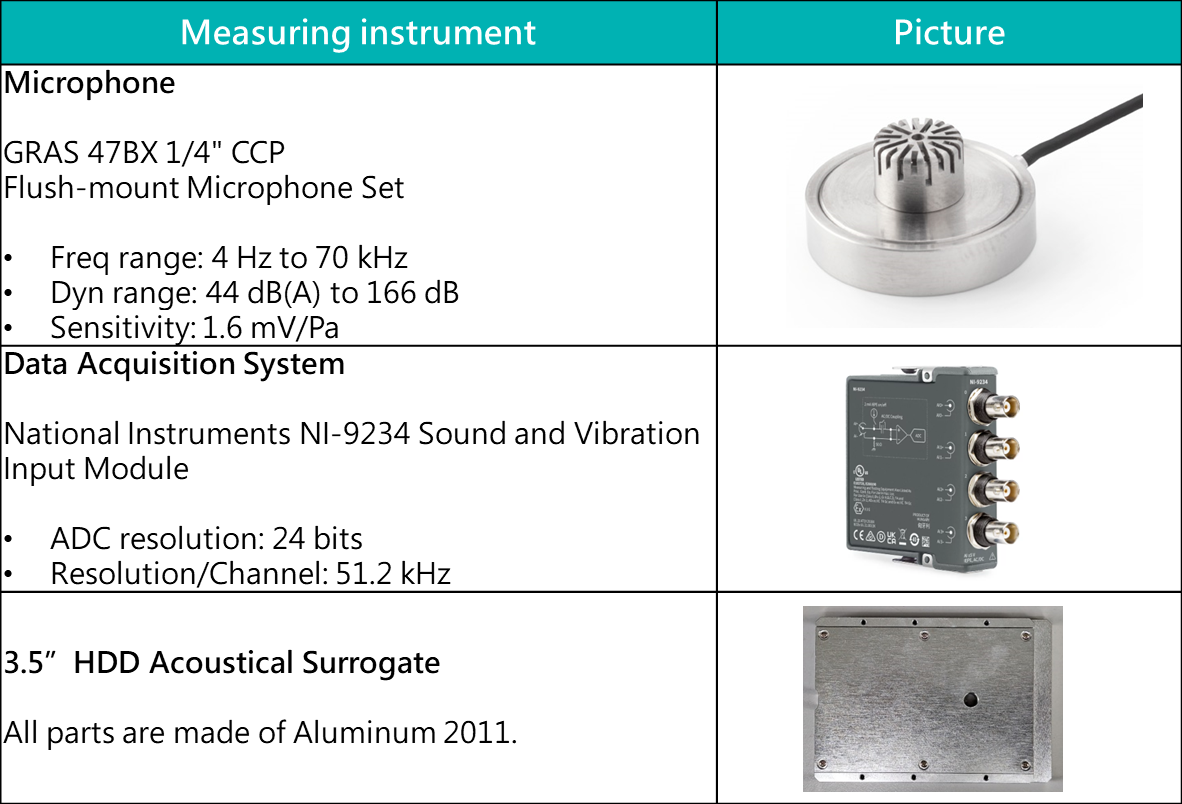
As a provider of professional test verification and solutions, Allion has the measurement equipment recommended by OCP Storage HDD Dynamics Group and can provide the same measurement tools and methods as them. The tools and methods are as follows:
As a leading provider of professional testing and validation solutions, Allion Labs has the measurement equipment recommended by the OCP Storage HDD Dynamics Group, as well as extensive experience in acoustic and storage device testing. Allion Labs provides the appropriate measurement methods for both hard drive and server enclosures, with the use of a professional Listening Chamber to eliminate measurement errors caused by other environmental noise and produce the most accurate measurement data.
Effect of noise and vibration on hard disk
By giving different frequencies and intensities of noise in front of the hard disk in the performance test, we can find the frequency and intensity of noise to which the hard disk is less responsive , and provide the reference for the hard disk and the casing (hard disk tray) manufacturer for product design.
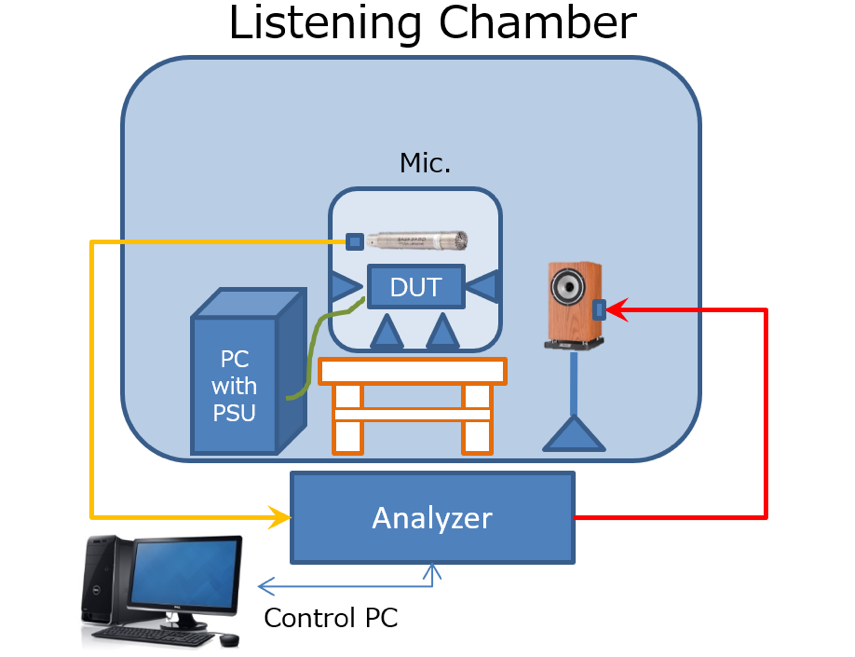
Output data:
– Sound pressure curve for each combination
– Hard disk performance at each acoustic pressure
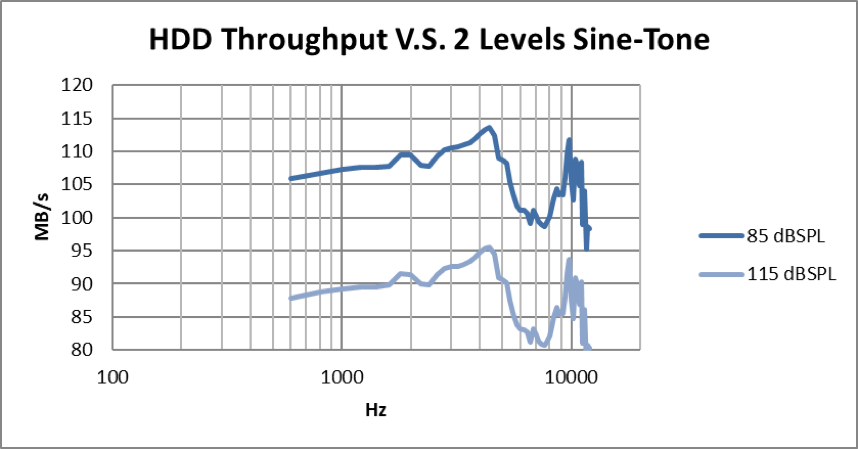
Volume of the radiator fan in the server
By installing the hard disk in the hard disk slot of the server, to measure the volume of noise generated by the radiator fan at various speeds to the hard disk slot. It is used as the reference for the server manufacturer to design the server internal structure.
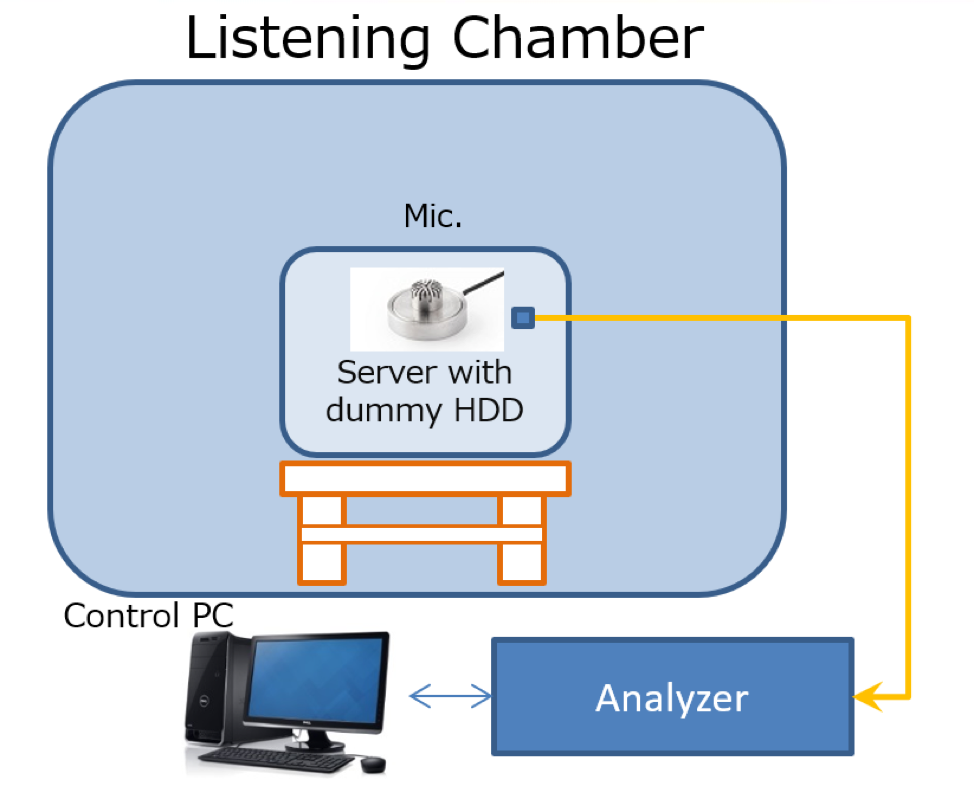
Output data:
- Audio files of noise at each radiator fan speed
- Spectrum analysis of noise at each fan speed
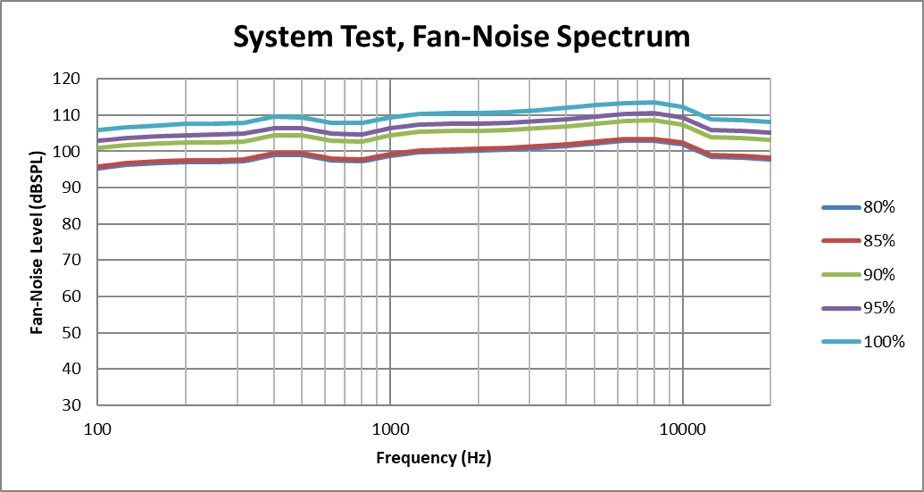
Based on the above two measurement methods, we can identify the weaknesses of the hard disk against noise vibration and derive the noise frequency generated by the radiator fan in the case, which is an important basis for optimizing the noise resistance of the hard disk and the case.
In the next article, we’ll continue to talk about our testing environments and methods.
Allion Labs | Key Component/Device Quality Test for Servers
https://www.allion.com/aiot/server-component-validation/















